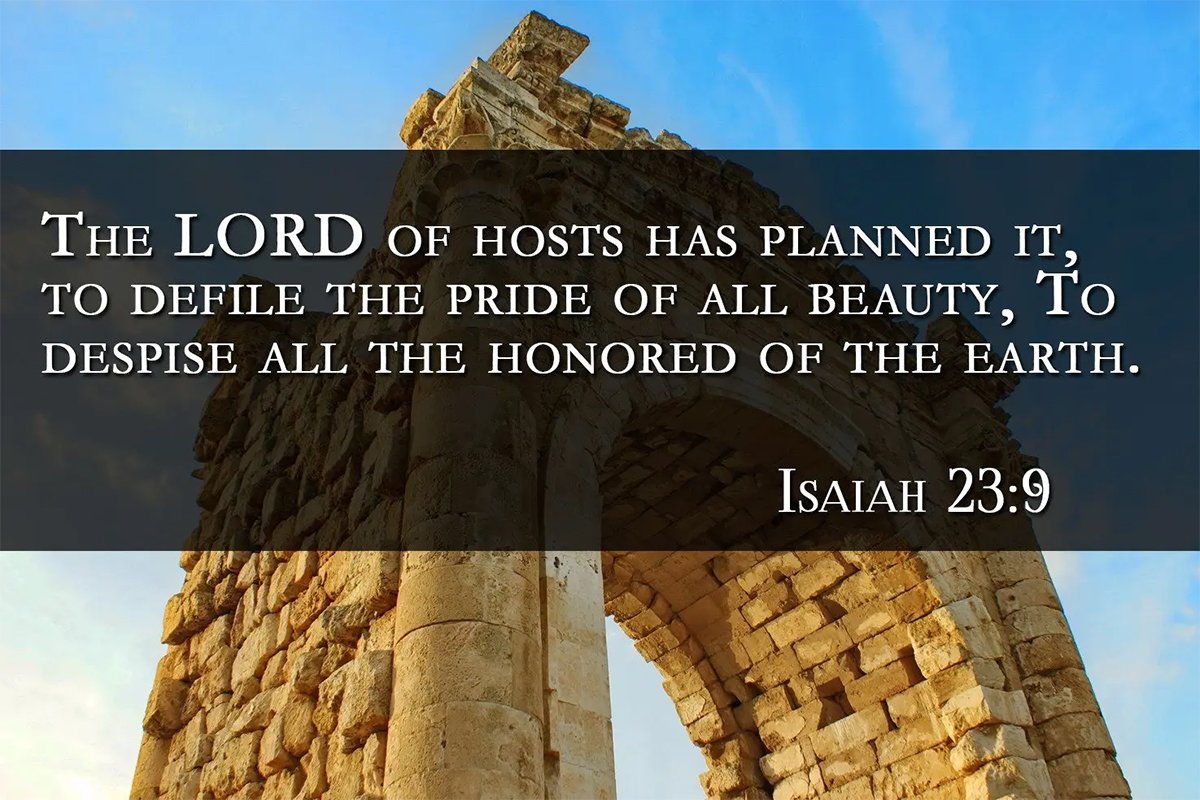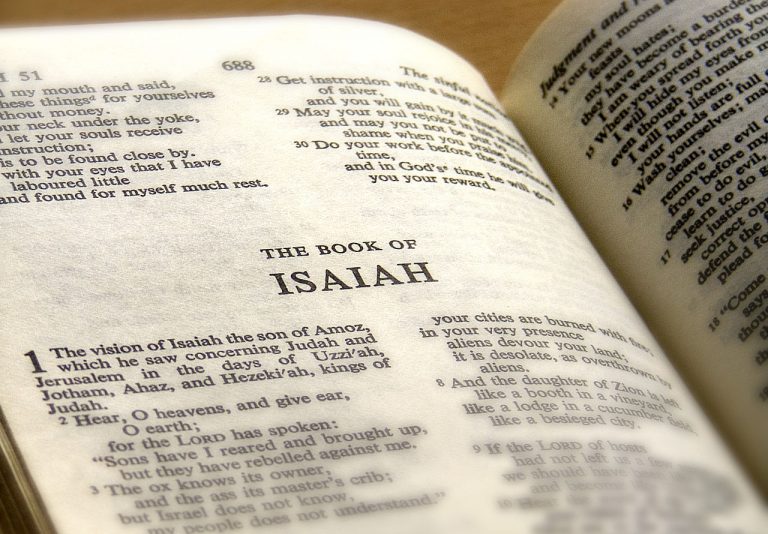An Oracle Concerning Tyre and Sidon
23 The oracle concerning Tyre.
Wail, O ships of Tarshish,
for Tyre is laid waste, without house or harbor!
From the land of Cyprus
it is revealed to them.
Be still, O inhabitants of the coast;
the merchants of Sidon, who cross the sea, have filled you.
And on many waters
your revenue was the grain of Shihor,
the harvest of the Nile;
you were the merchant of the nations.
Be ashamed, O Sidon, for the sea has spoken,
the stronghold of the sea, saying:
“I have neither labored nor given birth,
I have neither reared young men
nor brought up young women.”
When the report comes to Egypt,
they will be in anguish over the report about Tyre.
Cross over to Tarshish;
wail, O inhabitants of the coast!
Is this your exultant city
whose origin is from days of old,
whose feet carried her
to settle far away?
Who has purposed this
against Tyre, the bestower of crowns,
whose merchants were princes,
whose traders were the honored of the earth?
The LORD of hosts has purposed it,
to defile the pompous pride of all glory,
to dishonor all the honored of the earth.
Cross over your land like the Nile,
O daughter of Tarshish;
there is no restraint anymore.
He has stretched out his hand over the sea;
he has shaken the kingdoms;
the LORD has given command concerning Canaan
to destroy its strongholds.
And he said:
“You will no more exult,
O oppressed virgin daughter of Sidon;
arise, cross over to Cyprus,
even there you will have no rest.”
Behold the land of the Chaldeans! This is the people that was not; Assyria destined it for wild beasts. They erected their siege towers, they stripped her palaces bare, they made her a ruin.
Wail, O ships of Tarshish,
for your stronghold is laid waste.
In that day Tyre will be forgotten for seventy years, like the days of one king. At the end of seventy years, it will happen to Tyre as in the song of the prostitute:
“Take a harp;
go about the city,
O forgotten prostitute!
Make sweet melody;
sing many songs,
that you may be remembered.”
At the end of seventy years, the LORD will visit Tyre, and she will return to her wages and will prostitute herself with all the kingdoms of the world on the face of the earth. Her merchandise and her wages will be holy to the LORD. It will not be stored or hoarded, but her merchandise will supply abundant food and fine clothing for those who dwell before the LORD.
(ESV)
Isaiah 23 Commentary
by Brad Boyles
Babylon was the great city along the eastern side of the ancient world and Tyre was considered the great city of the west. Tyre was known for their fabulous wealth – a benefit to having a westward-facing city near the sea. Babylon and Tyre together represented everything that was significant in popular culture at that time. They had fame, beauty, wealth, and accomplishments too vast to mention.
We do not know for certain which event in history fulfilled this prophecy. Tyre was attacked at least five different times during Isaiah’s time until 332 BC. The reason none of these were fully successful is because of the unique design of the city. It consisted of the main city just offshore as well as a citadel on the island close by. If the main city came under attack, citizens would simply retreat to the citadel and wait for the attackers to be overcome.
The final destruction of Tyre, which the prophecy may speak of, was when Alexander the Great successfully overran the city and used it’s materials to build a bridge to the island, destroying the citadel. Legend has it Alexander was furious at the difficulty and persistence of the Tyrians, as well as the loss of his men, so he destroyed half the city. It has also been recorded that he crucified 2,000 of the leaders and sold 30,000 others into slavery. The city of Tyre has never been the same.
Just like the other cities, a similar application can be applied. The people were arrogant, prideful and wealthy. They thought they were completely self-sufficient. They believed nothing would overcome them. Ultimately, they placed their trust in all their “stuff” rather than God. The Lord spoke, and the results speak for themselves. We must heed the warning that the proud will fall!
There is no room for both total sacrifice to Jesus and the pride of our selfish desires. The Spirit and the flesh oppose each other, and a true teacher of the Word will be able to discern the difference. Repentance is the key. As the Lord picks apart our pride issues, we must be diligent in humbly confessing our waywardness.




